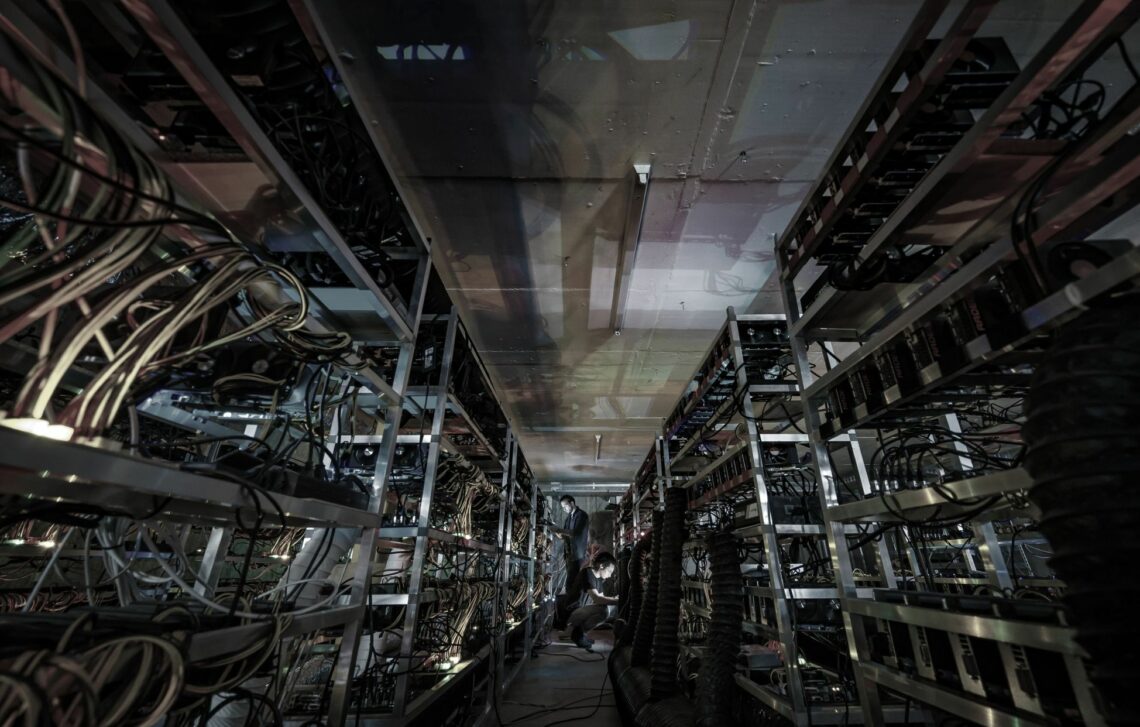Cryptocurrencies – fears and opportunities
After a few years of hype, experts are now tamping down expectations for cryptocurrencies. Indeed security and regulation concerns need to be addressed. But cryptocurrencies and blockchain technology also offer tremendous room for innovation and efficiency and could help profligate governments become more disciplined.

In a nutshell
- Blockchain technology decentralizes financial systems and operations
- It makes cryptocurrencies an attractive alternative to traditional currencies
- It could also make central banks and governments more disciplined
- Once concerns are addressed, it will likely have a positive impact on financial markets
This report was written in conjunction with Prince Michael of Liechtenstein
It was recently reported that Goldman Sachs has suspended its plans for a cryptocurrency trading desk. According to Vitalik Buterin, the developer of Ethereum, a blockchain platform that runs on the Ether cryptocurrency (the second-most valuable cryptocurrency after Bitcoin) delaying institutional trading for several years is a sensible move, since the market has to settle.
In an interview with Bloomberg, he tamped down expectations and emphasized that he does not see potential for any more of the extreme growth cryptocurrencies have experienced over the past few years. After the blockchain and cryptocurrency hype in recent years, it is now time to develop the technology’s more practical applications, he said.
At the core of a blockchain system is information arranged in a sequence that is uniquely identifiable to a person (physical or legal) and can be safely transmitted from one user to another. This information can have various functions and can be used multiple times. In the case of cryptocurrencies, owners can transfer digital money to third parties through blockchain technology. The blockchain then acts as a payment system, working with the user interface, like a wallet app on a smartphone.
In the cryptocurrency world, the sequence of information is called a “token.” There are systems (Bitcoin), in which this information is, technically, not designed as a token (a token could represent, for example, any number of bitcoins). The term denotes the transferability of this information and its freedom from external influence.
Blockchain fulfills the ideal conditions for digitizing money, assets and intellectual property.
Blockchain technology ensures that this information is easy to interpret and cannot be copied, modified or changed, providing a high degree of system security. As a result, it fulfills the ideal conditions for digitizing money, assets and intellectual property.
Centralized vs. decentralized
Money is a means to facilitate the exchange of goods and services and to set a comparable price for that exchange. It also stores value between exchanges. These savings (the stored value) can also be borrowed against interest and put back into the economy, giving the savings an important function in providing capital.
The value of today’s major currencies is based on trust in the central banks and state treasuries, and the belief that other actors will accept this money at face value. It also requires trust that the banking system will properly keep, allocate and transfer funds. This system is centralized and requires reliable intermediaries.
On the other hand, cryptocurrencies are based on a direct exchange between purchaser and seller. It is a decentralized system in which the blockchain provides the necessary ledger. This allows essentially anybody to start a currency. Along with the three leaders – Bitcoin, Ether and Ripple – thousands of smaller currencies have sprung up. The Swedish National Bank even has plans to issue its own cryptocurrency, the e-krona, while Venezuela launched the “petro” cryptocurrency in February 2018. Liquidity is created by so-called “miners,” who earn a small amount of the cryptocurrency for each transaction they process. The blockchain technology limits these operations, preventing unlimited quantities of the cryptocurrency from being created.
To raise equity, an Initial Coin Offering, or ICO, system was developed. This uses the blockchain technology to replace the stock market, and effectively decentralizes its function of supplying capital to the economy.
Polarized approach
As with any revolutionary new technology, the use of blockchain to create independent currencies raises fears and expectations about potential winners and losers. In this case, the discussion is polarized and frequently emotional. In some countries, like China, cryptocurrencies have been banned. In others, like Luxembourg, authorities have warned financial intermediaries against engaging in cryptocurrency trading. In contrast, the canton of Zug, in Switzerland, allows taxes to be paid in Bitcoin. The Liechtenstein Financial Market Authority introduced a regulatory laboratory for new applications. Liechtenstein is also preparing a law that will regulate blockchain business models, to provide legal certainty for the market.

Being able to conduct transactions without an intermediary certainly has huge advantages in terms of time, cost and, if the technology works correctly, security. It is a good alternative to central bank-issued money and through competition could eventually enforce more monetary policy discipline in the current system.
The idea of having an alternative to traditional fiat money is attractive, especially today, when major currencies’ savings value is in jeopardy and the trust they require to work is declining. Central banks are no longer focused on their duty to protect money’s value and have instead bowed to the pressure spendthrift governments have put on them to finance oversized public debts.
Raising capital for newcomers or smaller growing businesses through the existing mechanisms, especially stock exchanges, includes cumbersome regulatory procedures and is expensive. Venture capital is mostly targeted at specific sectors and is not available to all innovations. An ICO is a fast and cost-effective way to raise capital or invest.
Benefits and drawbacks
The technology offers monetary applications that could be tailored to the specific needs of value chains in today’s global sharing economy while still being able to mesh with other monetary systems and currencies. It could also provide liquidity for smaller entities, such as municipalities, that need financing or payment solutions.
The trustworthiness of the technology, developers and owners of such currencies will have to be proven.
However, there are still issues that need resolving. Allegations that the transactions are anonymous and might therefore facilitate money laundering have to be addressed. In fact, in most cases, such transactions are not anonymous, but markets need the comfort of knowing for certain. Total anonymity is impossible to achieve. Yet this also raises the concern of how to protect the privacy of parties engaging in such transactions – so necessary in financial matters – in a decentralized environment.
Concerns have also been raised about the possibilities of committing fraud using the technology, which some perceive as immature. Hypothetical cases of “51 percent attacks” (whereby a single entity or group gains control of the majority of the system and can therefore alter the blockchain) would also need to be addressed.
Compared to the central banks, these systems are still very limited in capacity and speed. Substantial development work is still required. Mining cryptocurrencies consumes huge amounts of electricity due to the enormous computational power required, especially when it comes to currencies like Bitcoin. But like the fiat money issued by today’s central banks, cryptocurrencies are not backed by any tangible asset. The trustworthiness of the technology, developers and owners of such currencies will have to be proven.
The regulation question
Shifting control away from the lawyers and regulators who form the backbone of our current monetary system, to programmers designing blockchain frameworks for transactions will also pose an interesting challenge. How much regulation will be required? This crucial question arouses plenty of debate. Hopefully, reasonable solutions can be achieved between the promoters of supposedly “safe” centralized systems and the new decentralized peer-to-peer applications.

Governments will certainly want to keep control of money through central banks and monetary policy. It is extremely unlikely that countries or supranational institutions such as the European Central Bank (ECB) on behalf of the European Union will renounce these functions. To maintain this control, they can either ban cryptocurrencies or enact regulations tough enough to strangle the technology.
As in many other cases of young, emerging technologies, a bubble is forming in cryptocurrencies. The first cracks have already appeared, and the bubble will eventually burst, clearing space for a functioning system to develop. Yet a danger exists that this pending bust might provide a pretext to curb innovation.
Blockchain with improved scalability will increase efficiency in many areas: logistics and supply-chain control, healthcare, public administration (for land, car and company registries), smart contracts and more. In the financial industry, it might replace some banking functions, such as payments, custody and accounts – even independent of cryptocurrencies. The first industrial applications have been in trial mode, such as De Beers’ diamond supply-chain tracking, which provides asset-traceability assurance in cases of concerns about gems being used to finance violence (so-called “conflict minerals”). Others are set to launch soon, including Komgo and VAKT, which are trade platforms backed by energy companies and financial institutions.
Politics and monetary policy
The central banks of the world’s largest economies guide global monetary developments through economic interdependence. The United States Federal Reserve, the European Central Bank and the People’s Bank of China are in the lead, while others, like the Bank of Japan and the Bank of England, make up the second tier. Other central banks have de facto lost much of their monetary sovereignty.
With the creation of the euro currency, most European countries delegated their monetary policy to the ECB. That governments were ready to give up this important instrument of power inspired great hope that the ECB would conduct responsible monetary policy, independent of politics. The reality, however, disappointed. Together with the Fed especially, but also the Bank of Japan and the People’s Bank of China, the ECB tried to stimulate the economy with cheap money – destroying savings, creating asset bubbles and supporting irresponsible public expenditure and public debt through quantitative easing. In the long run, such policies can damage a currency’s value and erode trust in the institution that issues it.
It is often in a country’s long-term interest to give up political control over its currency.
Some countries, either because they are small or because they want to keep politicians from manipulating their currency, have chosen to use a foreign currency. For example, many countries have adopted the U.S. dollar as legal tender or have pegged their national currency to the dollar. Montenegro, which is not a member of the eurozone, has made the euro its official medium of exchange. These examples show that it is often in a country’s long-term interest to give up political control over its currency. The stability of currencies like the Swiss franc and the old Deutsche mark is based on the issuing institutions’ successful resistance to the expediencies of short-term politics. For reasons of efficiency, Liechtenstein forms part of the Swiss franc area, which includes the advantage that the Swiss National Bank acts prudently and has broad autonomy.
Healthy alternative
However, loose monetary practices and overly bureaucratic regulation of the financial industry have caused people to look for alternatives. A traditional one for savers is gold, but it is unsuitable for payments. Now, many see an opportunity for cryptocurrencies to meet this need.
Liechtenstein is likely to be a pioneer, advancing pragmatic, innovative regulation and supervision for cryptocurrency transactions and ICOs. This approach can allow the industry to develop sustainably while giving those who use such services the peace of mind they require. Those offering such services in Liechtenstein will have to be qualified financial intermediaries, assuring business is conducted responsibly and professionally. They will have to fulfill international standards to prevent money laundering and respect best-practice rules. The Liechtenstein financial services authorities will supervise these intermediaries. It is a promising project, aiming to create a safe and efficient system.
This fits with Mr. Buterin’s view that the sector must settle, and that practical applications have to be implemented. Unless the technology fails to develop according to expectations (which appears unlikely) or is stifled by legal bans or burdensome regulation (which seems more probable), we may finally see scenarios in which traditional money is complemented by these new technologies, with trusted nonpublic agents issuing stable currencies and providing useful financial instruments.








